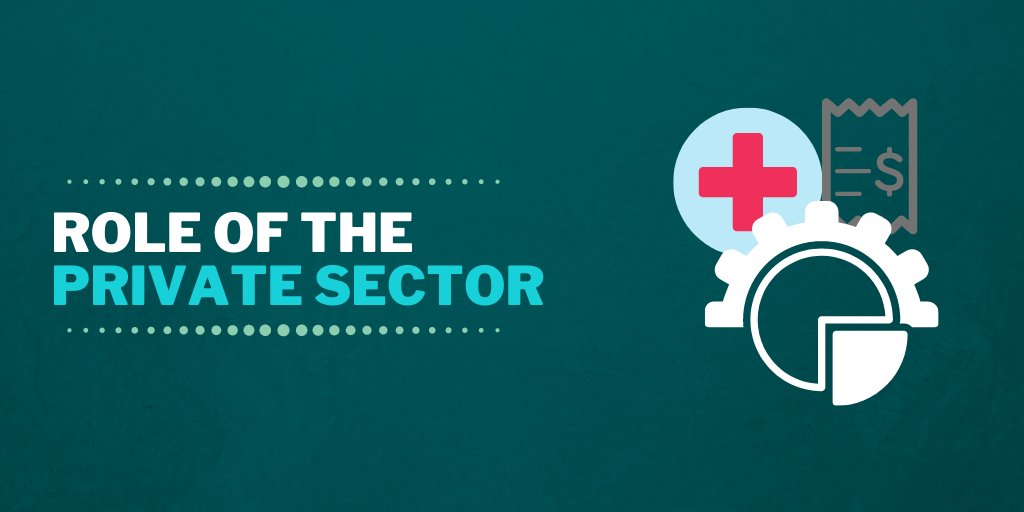By Felix Abrahams Obi
As the COVID-19 pandemic rages, governments across Africa and other continents are grappling with the tough decision of reopening their economies and also protecting the health and wellbeing of their citizens. While some countries have made significant progress in flattening the curve through a combination of pharmaceutical and non-pharmaceutical interventions, the rate of new infections and deaths continues to rise especially in United States, South America and Africa. Notwithstanding the epidemiological picture, policy makers have been constrained to ease the lockdowns and movement restrictions to allow for reopening of different sectors of the economy in addition to the resumption of local and international travels.
Many countries, especially developing economies with weak health systems, have experienced service disruptions at all levels of care, including immunization and other critical and essential services. Countries are ramping up their capacity to test, isolate and treat more patients than ever. With the increasing shortage of personal protective equipment (PPE), health workers at the frontlines have faced increased risks with some contracting the virus while others have died, unfortunately. In tackling the health and socioeconomic consequences of COVID-19, governments within Africa and elsewhere have faced resource constraints making it imperative to explore and mobilize additional resources from the private sector to strengthen the response. In addition to domestic resource mobilization to support the national response to COVID-19, the private sector has played critical roles in ensuring the continuity of primary health care services in their facilities, laboratory testing, logistics and supply chain management, risk communication, citizen engagements and community outreaches, setting up food banks and social safety net initiatives, amongst others.
What Best Practices And Models Are Emerging In Private Sector Engagement During The COVID-19 Pandemic?
Recently the Strategic Purchasing Africa Resource Center (SPARC) hosted a Twitter chat on the role of the private sector in the COVID-19 response with focus on Uganda. Available evidence shows that the private sector in Uganda and other countries have played crucial roles in mobilizing financial and other resources in addition to ensuring the continuity of essential health services through strategic partnership with the public sector.
Domestic Resource Mobilization
To effectively mobilize the resources and comparative advantage of the private sector, countries have adopted a variety of PPP strategies and approaches to collaborate and engage with the private sector in the wake of COVID-19. In Uganda, a National Response Fund to COVID-19 was established with private sector participation. And in Nigeria, the Central Bank and organized private sector collaborated to set-up the Private Sector Coalition Against COVID-19 (CACOVID) which has mobilized millions of dollars in cash and kind donations.
Ramping-up Testing, Isolation And Treatment Capacity
Although most countries have clear policies and plans for epidemic preparedness and response, the pandemic stretched the public health infrastructure and capacity for testing, contact tracing, isolation and treatment of COVID-19 patients. Through partnership with CACOVID, Nigeria ramped up its testing capacity by expanding Nigeria Centre for Disease Control’s (NCDC) network of molecular laboratories from five (in four states) as at March 2020 to fifty-seven (in thirty states) by mid July 2020. In addition to donating smartphones for COVID-19 emergency call centers, data capturing and case reporting, the private sector has supported different Nigerian states to establish bespoke isolation and treatment centres to augment the government’s response.
Facilitating Citizens’ Engagement And Risk Communication
Unlike high income and developed economies, majority of the citizens in African countries who earn daily wages experienced disruptions to their sources of income during the COVID-19 lockdowns. Many could not stock-up food and household supplies, hence required external support from their respective governments. Although governments provided some palliatives (cash transfers and food supplies) through their social investment programs, the private sector and civil society organizations (CSOs) played a critical role in ameliorating the humanitarian impact of COVID-19. In addition, the private sector helped to disseminate public health advisories and reinforced risk communication initiatives using different innovative approaches and platforms to engage citizens.
Innovations In Service Delivery
The private sector in Nigeria has partnered with federal and state governments to deploy technology and innovations to improve COVID-19 response. For instance, with the fear of contracting the virus reducing health facility attendance, a mobile application giving access to virtual consultations in Nigeria has helped increase innovation in the healthcare space, in addition to supporting health service delivery and continuity. A bank in Nigeria is providing free telemedicine services to all their customers for sixty days on this application. A medical emergency service pioneered the use of cost-saving mobile testing booths that prevents contact during sample collection in Nigeria
Continuity Of Services
In countries where some government health facilities were converted to COVID-19 isolation and treatment centers, private health facilities have bridged the gap in instances where patients are unable to access services from the public hospitals. In many countries the private sector for health donated PPEs such as face masks, and hand sanitizers for use by health workers at the frontlines. In Nigeria, to facilitate flow of and access to funds, the government released health facility funds, upfront, in a bid to provide lifelines to providers who had suffered revenue losses due to the COVID-19 lockdown. The financial support enabled the private sector, especially, to continue to provide essential services, including accident and emergency services during the lockdown.
Challenges To Effective Private Sector Engagement In Health
Although the private sector has come to the aid of governments in Africa to respond to COVID-19, it has also experienced market contraction with loss of revenue and investments, necessitating interventions from governments.
All things considered, the potential of the private health sector has yet to be fully exploited and deployed to improve the strategic purchasing and delivery of health services towards achieving universal health coverage (UHC). In most African countries, the informality of the sector presents a huge challenge to effective coordination and regulation. Poor engagement with this sector in the planning, implementation and monitoring of key health policies, resource constraints and workforce attrition hamper its potential to contribute meaningfully to the health system reform discourse and the capacity of governments to harness its innovative ability and efficiency to improve citizens’ access to quality healthcare.
Notwithstanding these challenges, the onus is on the relevant government bodies to develop appropriate policy and legal frameworks for engaging the private sector to ensure that the benefits of public private partnerships (PPPs) are realized. Without an enabling environment that incentivizes investments into the private sector for health, governments might find it challenging to get the private sector to participate in PPP and other arrangements designed to improve the production and delivery of essential health services; hence the imperative to foster and strengthen their active participation and ownership in health policy formulation and implementation, including during public health emergencies like COVID-19.
A step in the right direction is the recent establishment of a credit facility by Nigeria’s Central Bank to cushion the impact of the pandemic on the country’s private sector for health, with the overall aim of increasing private and public investment in the healthcare sector, and facilitating improvements in Nigeria’s healthcare delivery. This is a start but more needs to be done.
Conclusion
While the private sector continues to support the COVID-19 response, it is important for governments in Africa to explore opportunities to strengthen collaborations and partnerships with them towards achieving universal health coverage (UHC) in the continent. Such collaborations will help transfer and build capacity of health workers to deliver quality services, foster learning exchanges and sharing of best practices, generate evidence for improving policy and practice and the overall resilience of the health system to respond to health threats and emergencies.

Felix Abrahams Obi is a public health specialist with interest in health policy and systems research, health financing and knowledge translation. He is a Senior Program Officer with Results for Development (R4D) and is based at the Nigeria Office in Abuja. He can be reached via email: [email protected]

